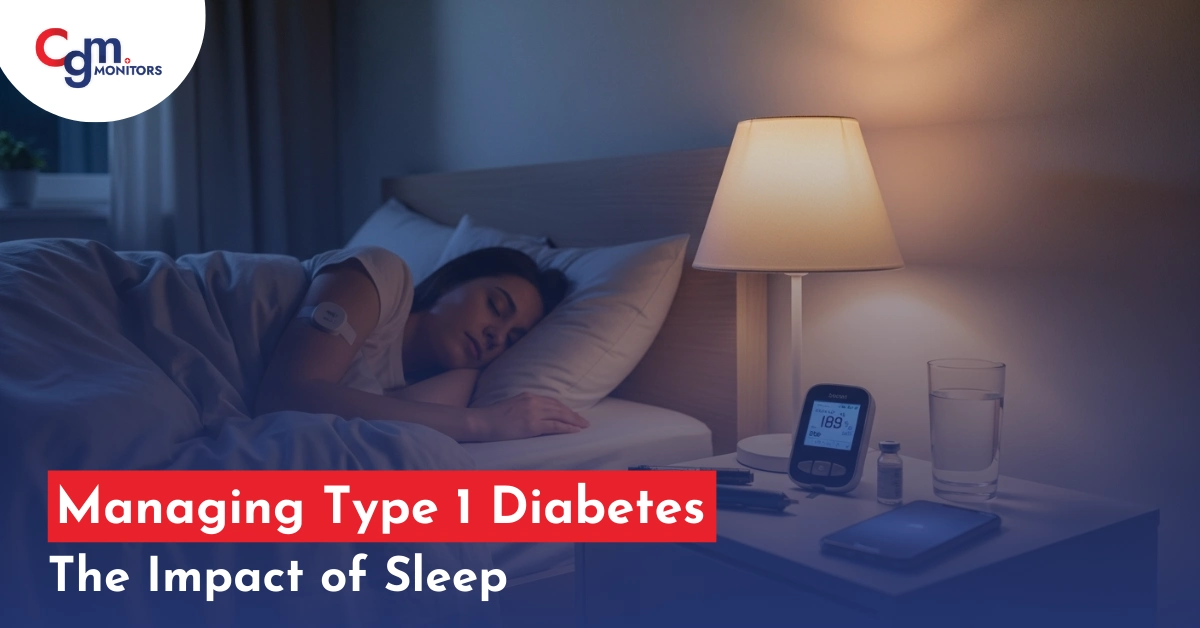Table of content
Life with Type 1 diabetes and sleep includes a regular balancing act of monitoring blood sugar levels, managing insulin, and creating lifestyle selections that care complete health. One vital but often ignored feature of handling Type 1 diabetes is sleep. Sleep acts an important part in blood sugar control, insulin sensitivity, and general well-being. In this article, we’ll learn the linking between Type 1 diabetes and sleep, and offer tips for enhancing your sleep to improved manage your state.
The Importance of Sleep for Type 1 Diabetes
Quality sleep is important for everybody, but it grasps specific position for persons with Type 1 diabetes. Here are some main explanations why sleep matters:
Blood Sugar Control: Sleep deficiency can lead to insulin resistance, meaning your body doesn’t respond as well to insulin. This can affect in higher blood sugar levels, which are thought-provoking to manage for somebody with Type 1 diabetes.
Hormonal Balance: Sleep assists to control hormones such as cortisol, growth hormone, and glucagon, all of which act parts in blood sugar control. Disturbed sleep can upset these hormonal rhythms, distressing blood sugar levels.
Energy Levels and Well-being: Suitable sleep recovers general energy levels, mood, and mental function, all of which donate to improved diabetes management.
Challenges of Sleep for Type 1 Diabetics
Managing Type 1 diabetes can sometimes affect with sleep due to numerous factors:
Nighttime Hypoglycemia: Low blood sugar occurrences during the night can disturb sleep patterns, producing wakening or even bad dream.
Dawn Phenomenon: Some persons experience an increase in blood sugar levels in the initial morning hours, which can disturb sleep and make morning glucose control challenging. Therefore, there is a need of device which can monitor your blood glucose level continuously which is CGM monitors. You can get the CGM devices from our websites https://cgmmonitors.com/ at reasonable prices.
Anxiety and Stress: The stress of managing diabetes can contribute to difficulty falling asleep or staying asleep.
Tips for Improving Sleep Quality
Consistent Bedtime Routine: Start a regular sleep timetable by going to bed and waking up at the similar time each day, even on weekends.
Create a Relaxing Environment: Make your bedroom favorable to sleep by keeping it cool, dark, and quiet. Ponder using blackout curtains, white noise machines, or earplugs if required.
Manage Blood Sugar Levels: Keep your blood sugar levels as steady as possible before bedtime to decrease the danger of nighttime variations.
Limit Stimulants: Avoid caffeine and heavy meals close to bedtime, as these can interfere with sleep quality.
Exercise Regularly: Involve in consistent physical activity, but avoid energetic exercise close to bedtime.
Manage Stress: Practice relaxation techniques such as deep breathing, meditation, or yoga to decrease stress levels.
Seek Professional Help: If you continue to have difficulty sleeping despite trying these tips, consult your healthcare team. They can help identify underlying issues and offer appropriate treatment.
Conclusion
Sleep is a vital element of managing Type 1 diabetes efficiently. By prioritizing good sleep habits and having any sleep-related trials, you can recover your complete well-being and increase your diabetes management efforts. Remember, minor changes in your sleep routine can make a big change in how you feel and function each day. Take control of your sleep to take control of your diabetes!
Managing Type 1 diabetes is a journey that needs care to numerous aspects of health, plus sleep. By knowing the connection between Type 1 diabetes and sleep, and applying plans to recover your sleep quality, you can well manage your condition and enjoy a healthier, more composed life.














Write a comment
Your email address will not be published. All fields are required